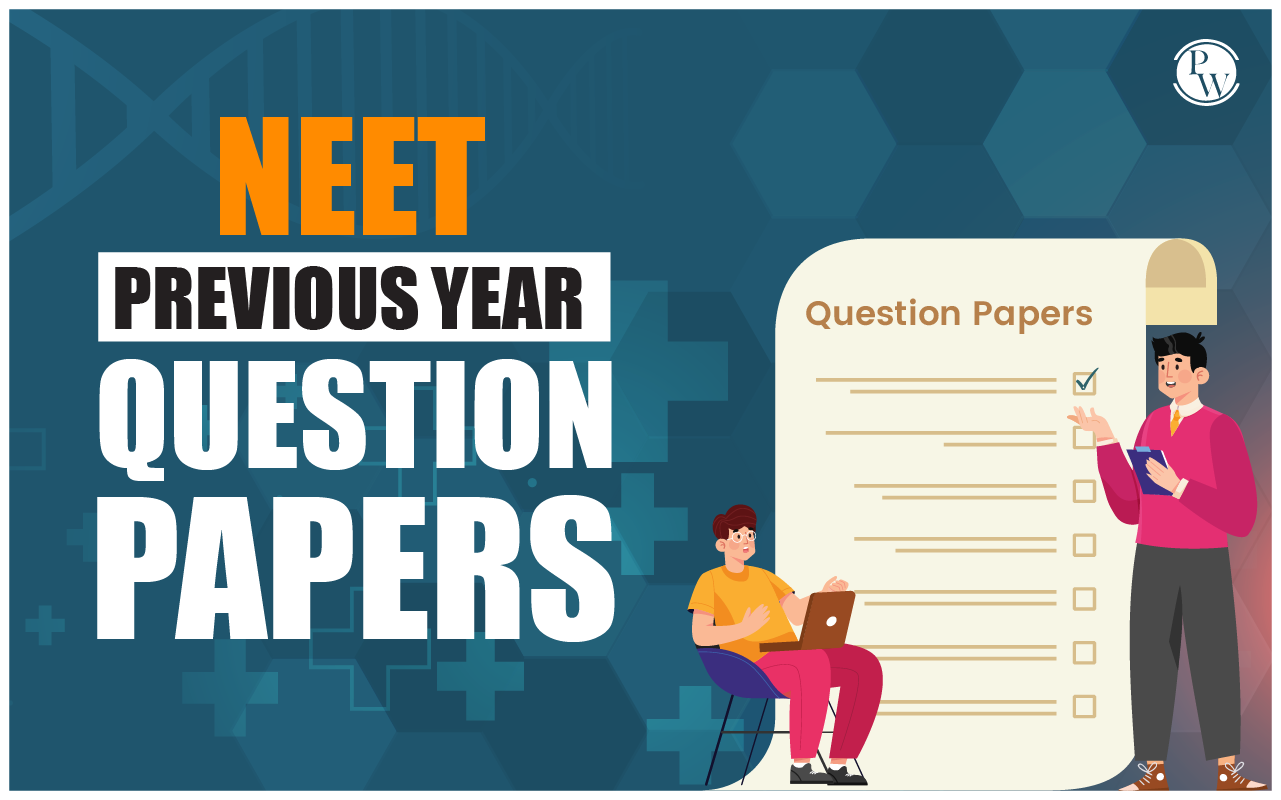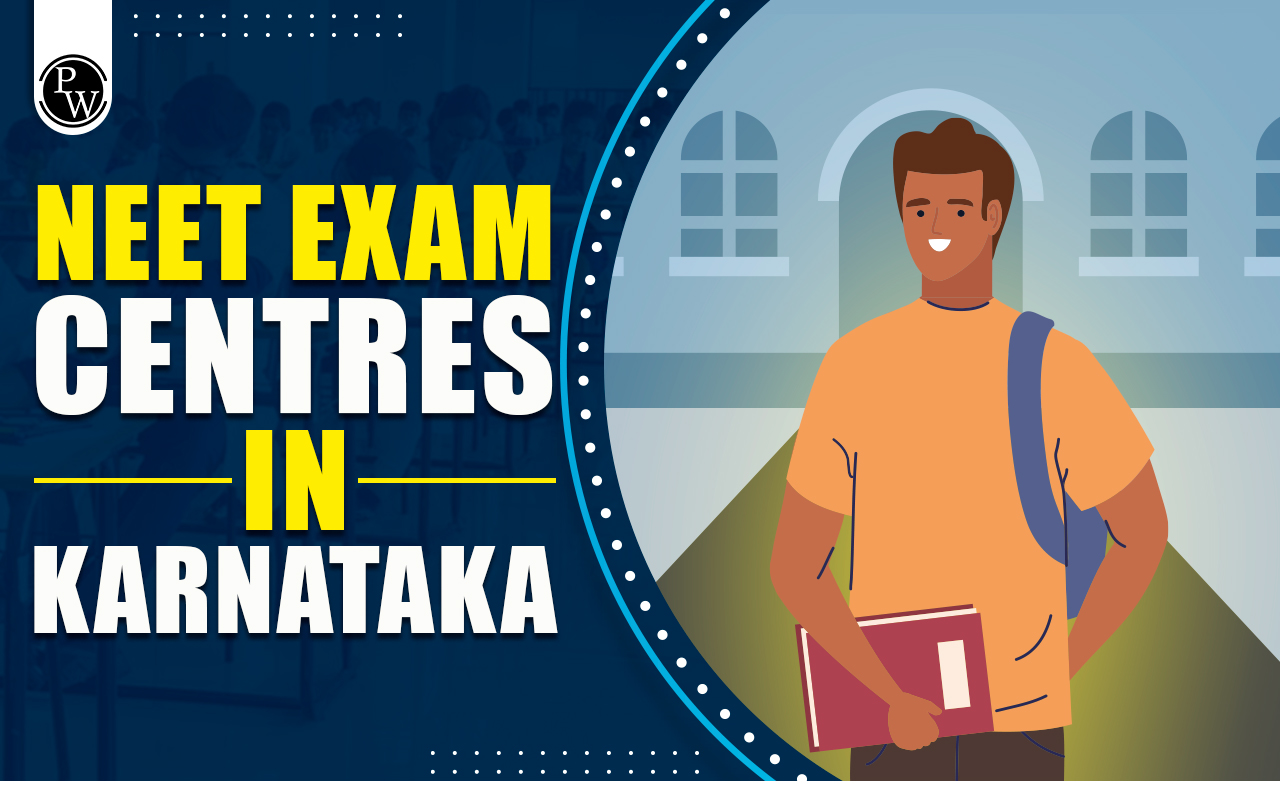



All Blogs







Get Free Counselling Today
and Clear up all your Doubts
NEET 2026 is a national-level medical entrance examination conducted by the National Testing Agency (NTA). It is the single gateway for admission to undergraduate medical courses such as MBBS, BDS, AYUSH, and other allied programs in India. Every year, around 15 lakh students appear for this exam, making it one of the most competitive entrance tests in the country. If you want to build a career in medicine, NEET is the first and most important step.
NEET 2026 Examination Highlights
NEET UG 2026 is India’s single entrance test for admission to major undergraduate medical and dental programs. It evaluates students’ knowledge of Physics, Chemistry, and Biology through a standardized national examination. Let’s take a look at the important details below:
| NEET 2026 Examination Highlights | |
| Particulars | Details |
| Exam Name | NEET UG 2026 |
| Conducting Body | National Testing Agency (NTA) |
| Exam Level | National-level |
| Exam Mode | Offline (Pen and Paper) |
| Courses Offered | MBBS, BDS, AYUSH, B.V.Sc, BSc Nursing |
| Subjects | Physics, Chemistry, Biology (Botany + Zoology) |
| Total Questions | 180 |
| Total Marks | 720 |
| Exam Duration | 3 hours |
| Marking Scheme | +4 for correct, -1 for incorrect |
| Exam Frequency | Once a year |
NEET 2026 Important Dates
Knowing the NEET UG 2026 important dates helps students stay organized and avoid missing deadlines. The entire admission process—from registration to counselling—follows a fixed timeline.
| NEET 2026 Important Dates | |
| Events | Dates |
| NEET 2026 Registration | 8 February 2026 |
| Last Date for filing the Application form and Fee Payment | 8 March 2026 |
| Application Correction Window | 10 March 2026 to 12 March 2026 |
| Admit Card Release | April 2026 |
| NEET 2026 Exam Date | 3 May 2026 |
| Display of Provisional Answer Key and Objection Submission | June 2026 |
| Display of Final Answer Key and NEET 2026 Result | June 2026 |
| Counselling Process | August 2026 (Expected) |
Note: Students should regularly check official updates to stay informed about any changes.
NEET 2026 Eligibility Criteria
The National Medical Commission (NMC) has set specific NEET 2026 eligibility criteria for students who want to appear for NEET 2026. Candidates must carefully check these conditions before filling out the registration form.
-
Nationality criteria
-
Academic qualification criteria
-
Age limit requirements
-
Number of attempts criteria
-
Qualification exam code criteria
Students should review the official NEET 2026 eligibility guidelines to understand admission requirements, qualifying marks, age rules, and other important conditions.
NEET Application Form 2026
The NEET 2026 application form is released online by the National Testing Agency on its official portal. Students must complete registration, fill in personal and academic details, upload required documents, and pay the application fee. The correction window allows edits in the application form, and timely submission is required to appear for the exam.
NEET 2026 Exam Pattern
Understanding the NEET exam pattern and marking scheme is essential before beginning your preparation. The detailed structure of the exam is provided in the table below based on previous year trends.
| NEET 2026 Exam Pattern | ||
| Subject | Number of Questions | Marks |
| Physics | 45 | 180 |
| Chemistry | 45 | 180 |
| Biology | 90 | 360 |
| Total | 180 | 720 |
NEET 2026 Syllabus
The NEET 2026 syllabus is based on NCERT Class 11 and Class 12 textbooks for Physics, Chemistry, and Biology. A clear understanding of fundamental concepts is necessary because questions are mostly conceptual and application-based. Students should carefully study the official syllabus to plan their preparation effectively.
| NEET 2026 syllabus - Notes and YouTube Link | |||||
| Biology | Physics | Chemistry | Biology YT | Physics YT | Chemistry YT |
| Diversity of Living Organisms | Physics and Measurement | Some Basic Concepts | Diversity of Living Organisms YT Link | Physics and Measurement YT Link | Some Basic Concepts YT Link |
| Structural Organization in Plants & Animals | Kinematics | Atomic Structure | Structural Organization YT Link | Kinematics YT Link | Atomic Structure YT Link |
| Cell Structure and Function | Laws of Motion | Chemical Bonding & Molecular Structure | Cell Structure YT Link | Laws of Motion YT Link | Chemical Bonding YT Link |
| Plant Physiology | Work, Energy, and Power | Chemical Thermodynamics | Plant Physiology YT Link | Work Energy Power YT Link | Chemical Thermodynamics YT Link |
| Human Physiology | Rotational Motion | Solutions | Human Physiology YT Link | Rotational Motion YT Link | Solutions YT Link |
| Reproduction | Gravitation | Equilibrium | Reproduction YT Link | Gravitation YT Link | Equilibrium YT Link |
| Genetics and Evolution | Properties of Solids and Liquids | Redox & Electrochemistry | Genetics and Evolution YT Link | Properties of Solids and Liquids YT Link | Electrochemistry YT Link |
| Biology and Human Welfare | Thermodynamics | Chemical Kinetics | Biology and Human Welfare YT Link | Thermodynamics YT Link | Chemical Kinetics YT Link |
| Biotechnology and Its Applications | Kinetic Theory of Gases | Classification & Periodicity | Biotechnology Applications YT Link | Kinetic Theory of Gases YT Link | Classification Periodicity YT Link |
| Ecology and Environment | Oscillation and Waves | P-Block Elements | Ecology and Environment YT Link | Oscillation and Waves YT Link | P-Block Elements YT Link |
| — | Electrostatics | d- and f-Block Elements | — | Electrostatics YT Link | d and f Block YT Link |
| — | Current Electricity | Coordination Compounds | — | Current Electricity YT Link | Coordination Compounds YT Link |
| — | Magnetic Effects of Current and Magnetism | Purification & Characterisation | — | Magnetism YT Link | Purification Characterisation YT Link |
| — | Electromagnetic Induction and Alternating Currents | Basic Principles of Organic Chemistry | — | EMI and AC YT Link | Basic Organic Chemistry YT Link |
| — | Electromagnetic Waves | Hydrocarbons | — | Electromagnetic Waves YT Link | Hydrocarbons YT Link |
| — | Optics | Compounds with Halogens | — | Optics YT Link | Halogen Compounds YT Link |
| — | Dual Nature of Matter and Radiation | Compounds with Oxygen | — | Dual Nature YT Link | Oxygen Compounds YT Link |
| — | Atoms and Nuclei | Compounds with Nitrogen | — | Atoms and Nuclei YT Link | Nitrogen Compounds YT Link |
| — | Electronic Devices | Biomolecules | — | Electronic Devices YT Link | Biomolecules YT Link |
| — | Experimental Skills | Practical Chemistry Principles | — | Experimental Skills YT Link | Practical Chemistry YT Link |
NEET 2026 Admit Card
The NEET 2026 admit card will be released online by the National Testing Agency (NTA) a few days before the exam. It is a mandatory document that students must carry to the examination center. The admit card contains important details such as exam date, center address, reporting time, and candidate information.
NEET 2026 Answer Key
After the NEET UG 2026 exam, the official NEET 2026 answer key will be released by NTA. Students can compare their responses with the answer key to estimate their scores. If any discrepancy is found, candidates can challenge the NEET 2026 provisional answer key within the specified time. The final answer key is used to prepare the result.
NEET 2026 Result Date
The NEET 2026 result will be announced online in June 2026. Students can download their scorecard by entering their application number and date of birth. The scorecard includes marks obtained, percentile score, All India Rank, and qualifying status. This result determines eligibility for counselling and admission.
NEET 2026 Cutoff Marks
The NEET cutoff marks represent the minimum score required to qualify for the exam. The cutoff changes every year based on exam difficulty, number of candidates, and seat availability. There are two types of cutoffs: qualifying cutoff and admission cutoff. Qualifying cutoff allows participation in counselling, while admission cutoff determines final college allotment.
NEET 2026 Counselling Process
After the NEET result, the NEET counselling process starts for seat allocation in medical colleges. Counselling for 15% All India Quota (AIQ) seats is conducted by the Medical Counselling Committee (MCC), while state authorities manage counselling for 85% state quota seats.
NEET 2026 Study Material
Good study material helps students understand concepts clearly and improve exam performance. Physics Wallah (PW) provides quality study material for NEET 2026, including topic-wise notes, sample papers, topper strategies, books, and free lectures to simplify complex topics. Using structured resources and regular practice materials makes preparation more effective and focused.
|
PW Study Material for NEET 2026 |
NEET 2026 Preparation Tips
Smart preparation and consistent practice are key to cracking NEET 2026. Focus on NCERT Class 11 and 12 concepts, especially Biology, and follow a balanced daily timetable for all subjects. These NEET 2026 Preparation Tips help improve accuracy through regular mock tests, revision of formulas and diagrams, and solving previous year papers to understand the exam pattern and difficulty level.
















